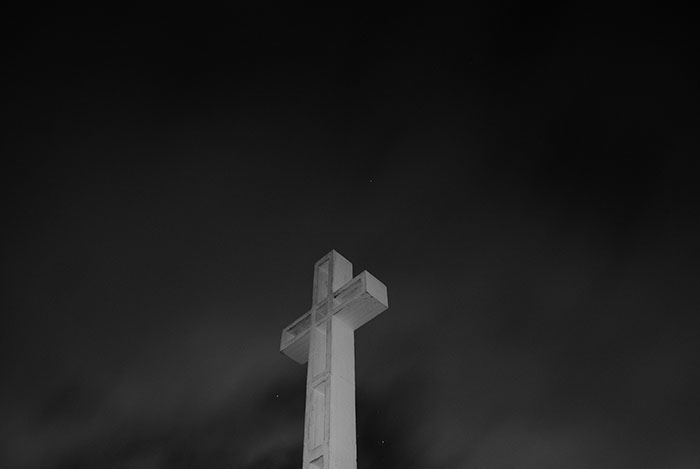Read:
Luke 9:18–27[1]
18 Once when Jesus was praying alone, with only the disciples near him, he asked them, “Who do the crowds say that I am?” 19 They answered, “John the Baptist; but others, Elijah; and still others, that one of the ancient prophets has arisen.” 20 He said to them, “But who do you say that I am?” Peter answered, “The Messiah of God.” 21 He sternly ordered and commanded them not to tell anyone, 22 saying, “The Son of Man must undergo great suffering, and be rejected by the elders, chief priests, and scribes, and be killed, and on the third day be raised.”
HOPE’S KEY
Who Is Jesus? We have a habit of making judgments about one another. This is especially true when someone begins to emerge as a celebrity, and Luke wants us to know that most people were very taken by Jesus. However, there had been impressive people before and we sense that people thought Jesus belonged to the special group of heroes in Israel’s history (9:18–19).
But, Jesus was not content with this, and so he asked a more focused question of his disciples: ‘Who do you (plural) say that I am?’ (9:20). He reckoned that they had been with him long enough to form an opinion about him. By that time they had seen him day-in and day-out for over two years. They had listened to him and come to know him. And, while they seemed dissatisfied with the views of others, such as the Pharisees, Herod and even the crowds, they themselves still seemed to be uncertain about him. Jesus now challenged them to clarify their thoughts.
In this context, the picture cleared, at least for Peter. No doubt he had thought about the question before, but the idea had seemed impossible: ‘You are the Christ of God,’ he said (9:20). His response is as mind-blowing as it is significant. He was saying that Jesus was God’s long-promised ‘anointed one’ (Messiah). These men who had been in close proximity to Jesus, who had enjoyed the privilege of observing his every move and every look, confirmed Luke’s record of the words and events surrounding the birth of Jesus: Jesus is the Christ of God (also, 4:18–21).
THE MESSIAH
This is the first human testimony to Jesus being the Messiah, the Christ of God. Until now this kind of public witness had come only from supernatural sources – angels (1:31–35, 2:11), God the Father (3:22), and demonic spirits (4:41).
Prayer. It is easy to overlook that Peter’s testimony also had a supernatural origin, for the flow of Luke’s narration implies that Peter’s insight occurred as an outcome of Jesus’ prayer (9:18). It suggests that we too need to pray that people around us will come to this same statement of faith.
The radical solution for our need (9:21–22). Having recognized him the Messiah, Jesus knew his disciples would need a re-education program. Clearly they thought of the Messiah as a warrior king, like king David, a supernatural leader who would purge the country of the Roman scourge. They thought of God’s Messiah as the leader who would establish the glory of the kingdom of David across the whole world. This was their dream, their desire and their hope. Indeed, we get the impression that they saw themselves as having a role as courtiers in the coming kingdom (for example, 9:46–48).
But Jesus commanded them to tell no-one about what they now understood (9:21). His command for silence echoes his words to the demons (4:40–41), but his reasons here are different: ‘The Son of man must suffer many things…,’ he said (9:22). He needed to teach them that his path to glory would involve suffering and a cross. He would be rejected and would be put to death, but on the third day he would rise to life. With Luke’s arrangement of these two verses we feel the force of Jesus’ injunction for silence and the reason for it. However, the full significance of these events would only become clear to the disciples once they had taken place.
It is most important that we understand what Jesus is saying here. Most people reckon that what is needed to make the world a better place, is a new government, better education, better law enforcement. But Jesus knew that power, wielded by legitimate governments in the cause of justice could, at best, only limit evil. He knew the greed, the hatred and the selfishness of our human hearts could not be rooted out by better laws, better education or still less, by warfare, though these things have their place.
There was only one weapon that could finally defeat the power of evil and that was the weapon of innocent suffering and voluntary sacrifice. It required him, innocent man before God that he is, to tread a path to a cross. If Jesus had said the world could be rescued through education, social action, better government, or even armed revolution, many would follow. But he had to hang and suffer on a tree. And we might be tempted to ask, ‘You can’t really change the world like that, can you?’ The extraordinary thing is that he did.
You may want to consider:
1. the significance of Jesus’ questions of the disciples;
2. the place of prayer in people’s response to Jesus;
3. the implications for us to Jesus’ resolution to our human need.
Let me encourage you to pray:
© John G. Mason, Reason for Hope – 40 Days of Bible Readings and Reflections – 2016. All Rights Reserved.
- Comments on the text of The Gospel of Luke are adapted from, John G. Mason, Luke: An Unexpected God, Aquila: 2012 ↩


